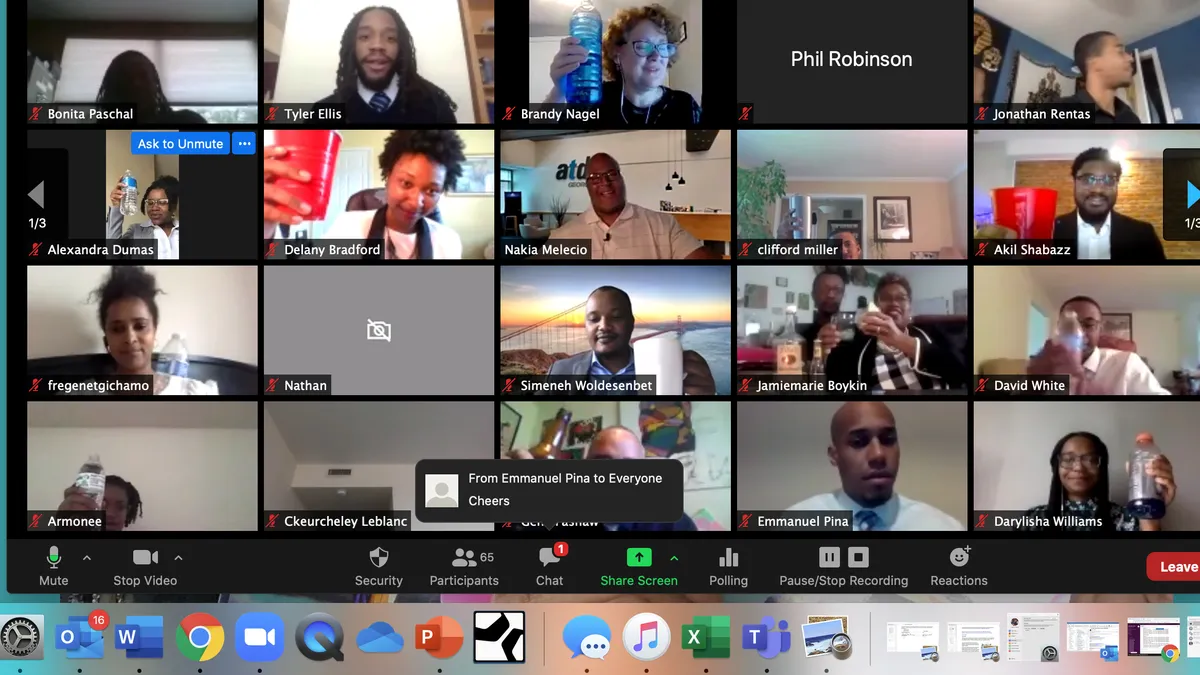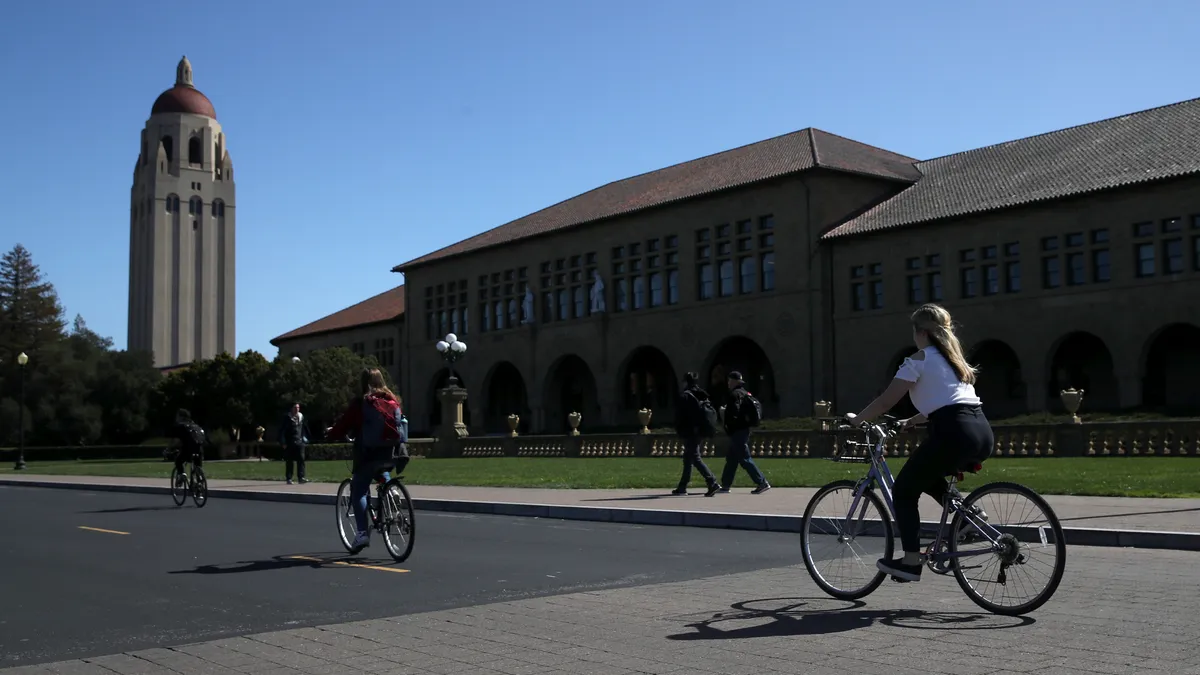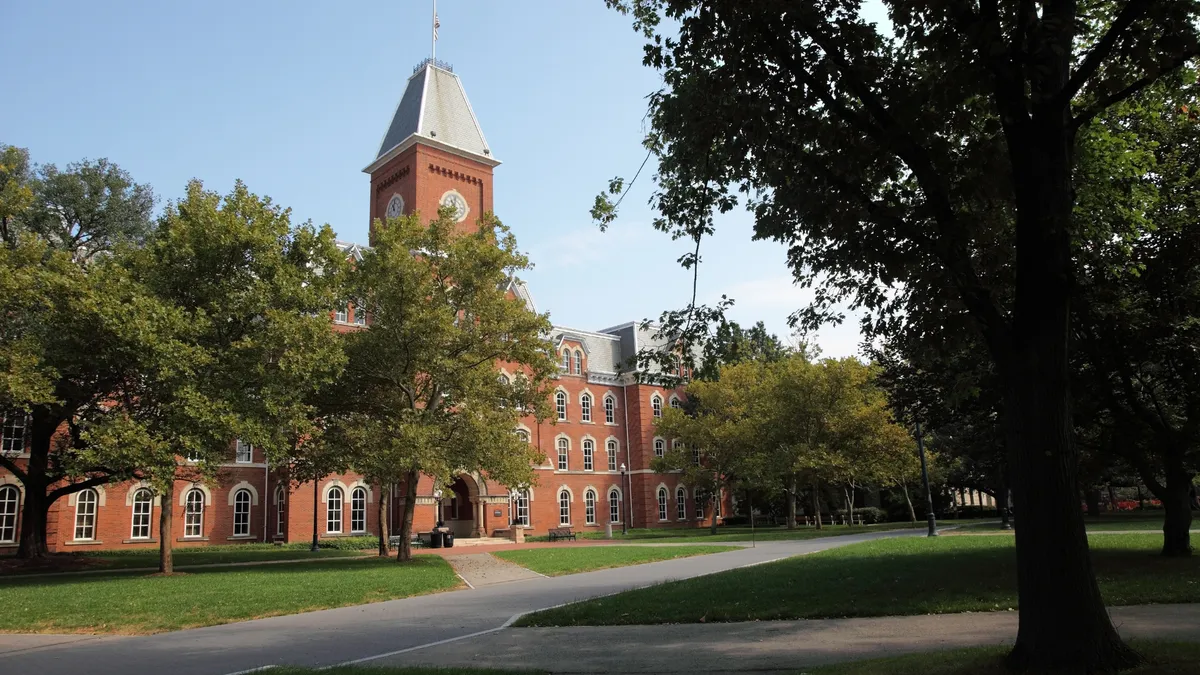College students and recent graduates considering a future in the biotechnology sector have a new way to try it out, thanks to a tuition-free summer program at the Morehouse School of Medicine.
Officials at the historically Black medical school want to offer more than exposure through the five-week intensive offering, however. Their goal is to strengthen the pipeline into graduate school and industry for underrepresented students in a lucrative, fast-growing field that has drawn criticism for failing to recruit and retain people of color and women, particularly in its executive ranks.
A 2017 study found that Black people account for only 3% of executive biotech leadership roles despite making up 13% of the U.S. population. And a 2018 survey found that women represent half of all entry-level biotech positions but only 20% of senior leadership.
Angelita Howard said her job overseeing the program, called Bridges to Biotechnology and Bioentrepreneurship, is to train students who will help diversify the field.
"It's a huge industry, but as it relates to the African American population it's small," said Howard, who is the assistant dean of online education and expanded programs.
Morehouse's program joins a small number of similar initiatives focused on improving representation in the sector, including the ENABLE project at the University of North Carolina at Chapel Hill.
And it is doubling down on those efforts this year with a similar offering in health informatics, which mixes the medical and information technology fields. Both programs, which run through July, promise admission into a related online master's degree at Morehouse, along with a $500 stipend and $1,000 scholarship, for those who successfully complete the coursework. They also include a mix of online synchronous and asynchronous instruction, with group projects, virtual meetups, emails and group text-messaging threads that help students stay connected outside of class.
Last year, the biotech bridge program attracted 350 applicants, and 125 were interviewed for 54 slots. All but one person completed the program. This year 168 people applied for 100 seats across both programs. Howard attributes the surge of applications in the first year to the pandemic having pushed instruction online. She hopes to steadily increase the number of students participating each year.
Health informatics industry veteran Christopher Kunney, who is Black, thinks Morehouse's programs and others like them will help transform the sectors. "You're going to have people of color bringing a different lens to the table when they look at clinical information, because a lot of times those who don't look like them don't always take into consideration the different nuances associated with being a person of color," he said. Kunney is the chair of the industry advisory board for Morehouse's healthcare informatics master's and is the chief of strategy and business development for Florida-based healthcare company DSS.
That different lens could include collecting data that takes into account social determinants of health, such as lack of access to quality food, lack of education, historical concerns around healthcare abuse among communities of color and racial stereotypes. Kunney predicts the health informatics industry will be especially critical on the heels of the COVID-19 pandemic. "Bringing and educating more people of color into these disciplines helps to support a more diverse and inclusive arena of resources that can analyze data, in a less-biased sense," Kunney said.
Another strength of the Morehouse programs is that they give students the opportunity to learn from people who look like them, said Nakia Melecio, a senior research faculty member at the Georgia Institute of Technology's Enterprise Innovation Institute, who will return this summer as a biotech program instructor. "There is such a rich history and culture, first because it's an HBCU and, two, there's just so many great scientists and researchers and engineers that have come through (Morehouse School of Medicine)," Melecio said. "If the entrepreneurship piece takes place, this gives it a whole new understanding. So, now instead of hearing Stanford, Harvard (and) MIT, in the biotech conversation, it'll be Stanford, Harvard, MIT and Morehouse."
The school's industry ties also factor in. Morehouse School of Medicine has existing relationships with biotech companies such as Genentech and Johnson & Johnson to provide educational opportunities and post-graduate job placement support. Howard's team developed a new partnership with the Healthcare Information and Management Systems Society to help support and provide career development opportunities for health informatics bridge program students.
Delany Bradford participated in the biotech bridge program last summer and plans to wrap up coursework for the related Morehouse master's degree later this summer. The 26-year-old said those studies inspired her to set her sights on becoming an obstetrician-gynecologist who also develops medical devices.
This fall, she is scheduled to begin pursuing her medical doctorate at her dream school, the historically Black Meharry Medical College, in Nashville. She graduated from Meharry's online health sciences master's program in May.
This summer she is also busy mapping out plans to develop a specialized medical device that will help expectant mothers during the labor and delivery process.
"Immersing myself in that field and in that environment," she said of the Morehouse bridge and master's programs, "is what really helped me to not only make, but solidify my decision" to pursue biotechnology along with a medical career.
Correction: A previous version of this article incorrectly stated when Bradford is scheduled to begin her doctorate. It is this fall.
Chandra Thomas Whitfield is a freelance writer. She completed this story as part of the Institute for Citizens and Scholars Higher Education Media Fellowship program.




















